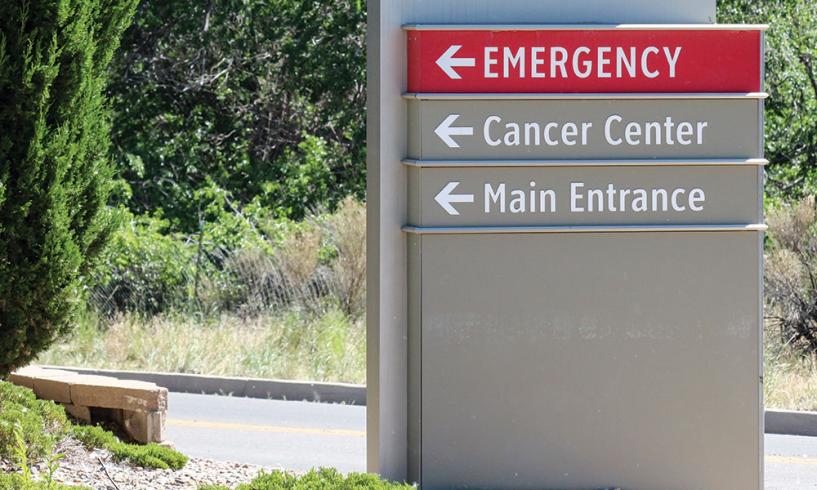Patients with advanced cancer often visit the emergency department to seek treatment for acute, distressing symptoms. Researchers conducting a new study have found that initiating palliative care during those visits leads to improved quality of life and does not shorten survival. The findings were published in JAMA Oncology.
The study followed 136 patients for one year, 69 of whom were randomized to receive palliative care consultation in the emergency department and 67 of whom received usual care. The usual care participants may have received a palliative care consultation if it was requested by the admitting team or an oncologist.
Researchers found that quality of life, as measured by a change in Functional Assessment of Cancer Therapy—General Measure scores at 12 weeks, was significantly higher in patients in the intervention group. Survival was also longer in the intervention group (289 days compared to 132 days for the control group), although this was not statistically significant (p = 0.20). The researchers noted that the lack of statistical significance was because of the highly variable length of survival in the cohort and that a future study that limits enrollment to patients at a similar stage in their disease would likely find a similar survival benefit and reach statistical significance. No statistically significant differences were found in depression, admission to the intensive care unit, or discharge to hospice.
The study authors explained that patients, families, and providers often make decisions about intensity of care, including whether to admit (and to what level of care) and whether to begin life-sustaining therapies, such as intubation or other invasive procedures, when patients with advanced cancer present to the emergency department. However, they noted that palliative care consultation typically does not occur until a week into a patient’s hospital stay. They surmised that the emergency department presents a key decision point at which physicians set the subsequent care trajectory during a hospitalization and that palliative care is a necessary component of that discussion.
Although the study found that patient quality of life is improved by palliative care consultation in the emergency department, the researchers noted that additional studies are needed to look at the impact on health care use and depression.






